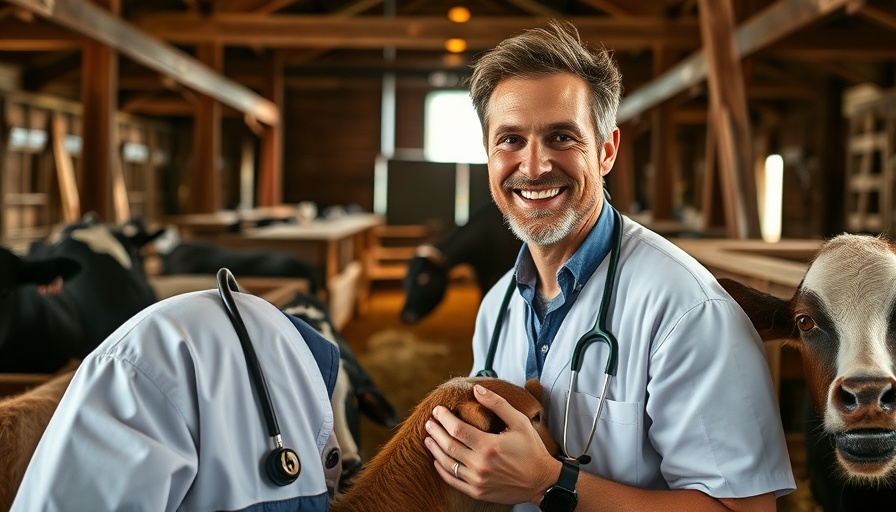
The Evolution of Veterinary Practice: Insights from Dr. Meghan Wells
In the ever-changing landscape of veterinary medicine, understanding the trends and attitudes shaping the industry is essential for clinic owners and practitioners. Dr. Meghan Wells, a veterinarian with a public health background, sheds light on the evolving needs of veterinary practices in contemporary settings. In a recent interview, she provided invaluable insights which not only reflect her expertise but also resonate with those aiming for operational excellence.
What Drives Change in Veterinary Clinics?
Dr. Wells explained that adaptability is crucial for veterinary clinics. As client expectations shift towards more personalized and technology-driven experiences, practices must evolve, not just in terms of services offered but also in how they engage with their clientele. This reflects a broader trend within the industry—clients are increasingly looking for value beyond traditional veterinary services.
Client Engagement: The New Digital Frontier
The advent of digital platforms has transformed how veterinary clinics communicate with clients. Dr. Wells emphasized the importance of online presence, advocating for clinics to harness social media and telemedicine services. These tools do not just enhance client engagement but also streamline operations, allowing practitioners to focus on what truly matters—their patients.
Embracing Technology: Enhancing Patient Care
The integration of technology into veterinary practice can significantly enhance patient care and clinic efficiency. Dr. Wells highlighted innovations such as mobile apps for prescriptions and reminders, which improve adherence and promote proactive health management. By incorporating these tools, clinics can foster a closer relationship with pet owners, ensuring timely interventions and improved outcomes.
Challenges: Navigating the Future of Veterinary Medicine
While the future of veterinary medicine appears promising, it is not without its challenges. Dr. Wells noted that the profession is facing increasing burnout and mental health issues among practitioners. Addressing these concerns is critical; it requires a commitment to creating healthier work environments that prioritize mental well-being. A culture that promotes work-life balance will not only attract top talent but also foster a more resilient veterinary workforce.
Looking Ahead: What Does the Future Hold?
As Dr. Wells pondered the future of veterinary practice, she expressed optimism. The rise of integrative medicine and holistic approaches to pet care could lead to more comprehensive treatment plans that encompass not just physical well-being but also emotional and psychological health. By staying informed and responsive to these trends, veterinary clinics can position themselves as leaders in the field.
The Unique Value of Partnerships in Veterinary Care
A key takeaway from Dr. Wells' insights is the value of building partnerships within the community. By collaborating with local businesses, nonprofit organizations, and pet owners, veterinary practices can create a supportive ecosystem that benefits all stakeholders. This collaborative approach fosters a sense of belonging and loyalty, encouraging clients not just to consider veterinary services transactionally, but as integral to their pets' overall quality of life.
In conclusion, adapting to the changing dynamics of veterinary practice requires both innovation and community engagement. Dr. Meghan Wells’ insights inspire clinic owners and practitioners to embrace these changes, ensuring they are prepared for the challenges and opportunities ahead. By prioritizing client engagement, integrating technology effectively, and building community partnerships, veterinary practices can not only thrive but lead the way in transforming pet care.
As the veterinary landscape continues to evolve, it is imperative for all stakeholders to keep the conversation going. What strategies have you implemented in your practice to adapt to these changes? Share your experiences and contribute to a future-focused dialogue in veterinary medicine.
 Add Row
Add Row  Add
Add 

 Add Row
Add Row  Add Element
Add Element 




Write A Comment